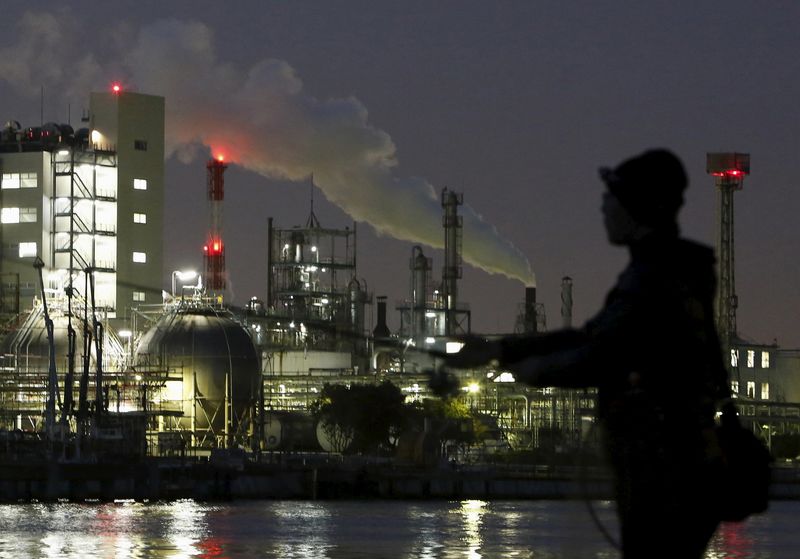By Tetsushi Kajimoto
TOKYO (Reuters) - Japan's factory output in February fell the most since 2011 when a devastating earthquake ruptured the supply chain, stoking fears of another recession and renewing pressure on policymakers to take evasive action.
The data followed passage of the fiscal 2016 budget on Tuesday, paving the way for Prime Minister Shinzo Abe to announce a new fiscal stimulus or drop the planned 2017 hike in sales tax after first quarter economic growth data due on May 18 is published.
The announcement may also be made around when Abe hosts a summit of the Group of Seven richest nations from May 26 to May 27.
Analysts expect GDP to resume moderate growth in January to March although some fear a second straight quarter of contraction - the definition of a technical recession - because of weak exports and tepid consumption.
"It's fully possible Japan may suffer a second straight quarter of contraction," said Hiroshi Shiraishi, senior economist at BNP Paribas (PA:BNPP) Securities.
With inflation stalling, consumer spending weakening and China's slowdown threatening to undermine the export-reliant economy, the Bank of Japan is also under pressure to act again after it unexpectedly adopted negative rates less than two months ago.
As speculation lingers that Abe may call a snap election for parliament's lower house to coincide with a July poll for the upper chamber, analysts bet Abe will adopt fresh stimulus targeting consumers and again delay raising the sales tax.
But some are sceptical about sustainability of such stimulus. "It may support the economy near-term but they won't be a fundamental solution. Structural reform such as immigration policy to secure the labour force is needed to fix Japan's rock-bottom growth potential," said BNP Paribas' Shiraishi.
Trade ministry data showed industrial output fell 6.2 percent month-on-month in February, largely in line with economists' median estimate. It followed a 3.7 percent rise in the prior month, which was the first gain in three months.
It was the biggest drop since March 2011, when the devastating earthquake and tsunami struck Japan's northeastern coastal areas.
The decline was exaggerated by one-off factors caused by the Lunar New Year holidays in China and Asia generally - Japan's key export markets - and Toyota Motor Corp's (T:7203) halting of factory production for a week following an explosion at a steel plant.
Excluding such factors, analysts see factory output remaining flat as a trend due to weakness in external and domestic demand, dragged by sluggish sales of smartphones and tame capital expenditure at home, in China and in Asia generally.
"Industrial output probably declined in the first quarter. I expect the economy to have barely grown even with the extra Leap Year day pushing up consumption in February," said Toru Suehiro, senior market economist at Mizuho Securities.
